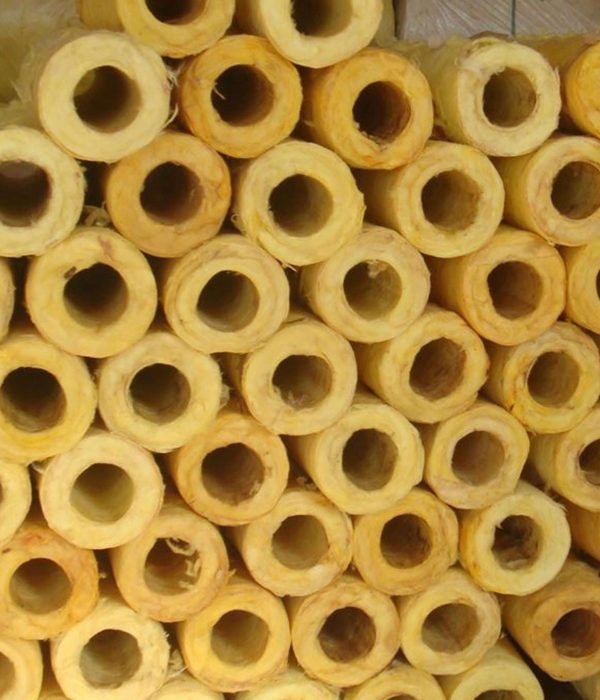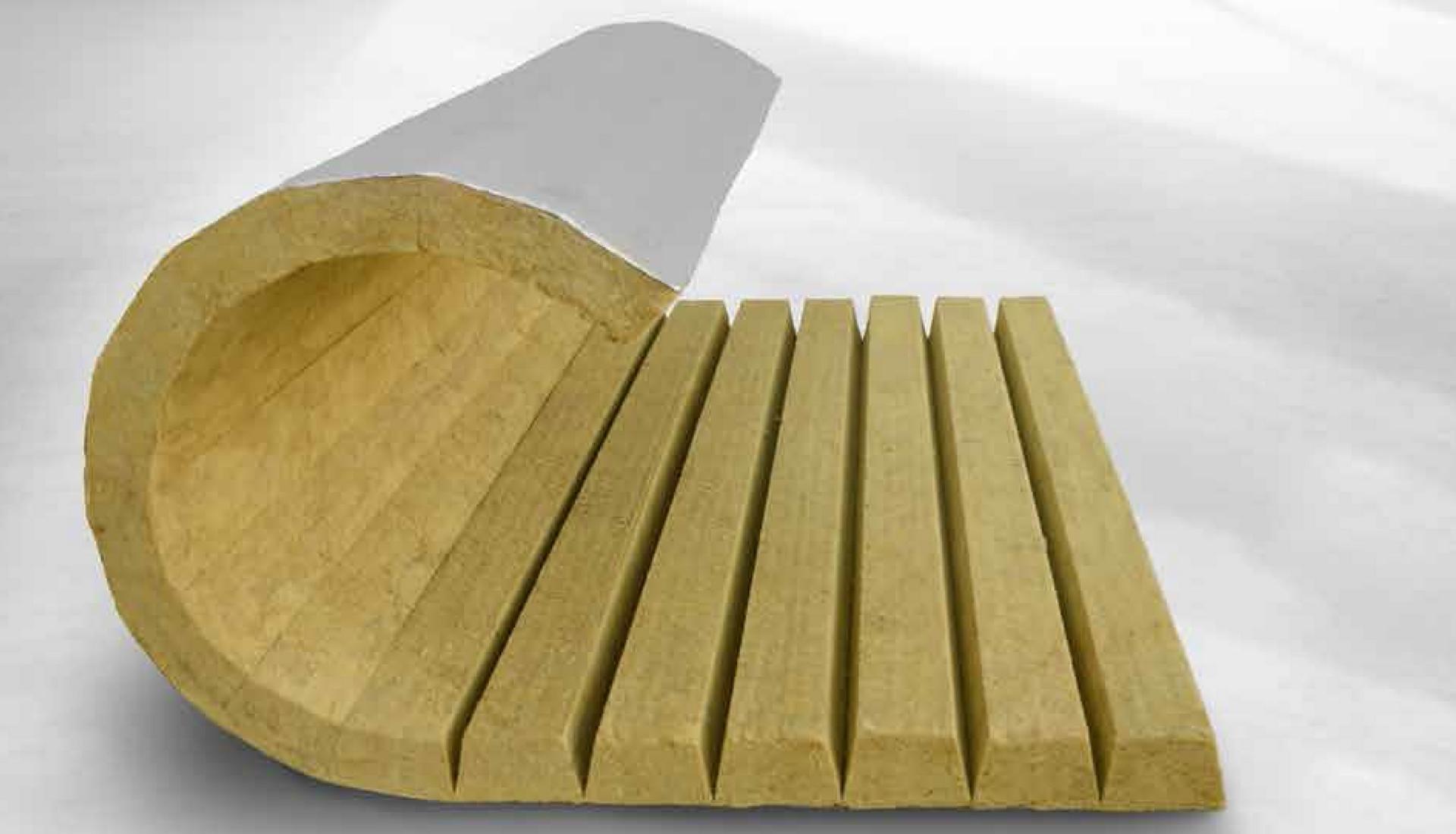Stone Wool Insulated Pipe
WARM Stone Wool Pipe
Stone Wool Insulated Pipe: Effective thermal insulation. Enhance energy efficiency and prevent heat loss. Get an offer now!


WARM Stone Wool Insulated Pipe
What is Stone Wool Insulated Pipe?
Stone Wool Insulated Pipe is a specialized pipe insulation solution composed of stone wool material, which is derived from volcanic rock. It features a layer of stone wool insulation that is tightly wrapped or encased around the pipe, forming a protective barrier. This insulation serves multiple purposes, including enhancing energy efficiency by minimizing heat loss and preventing condensation. It offers excellent thermal insulation properties, effectively maintaining desired temperatures within the pipes. Moreover, stone wool insulation provides additional benefits such as fire resistance, acoustic insulation, and resistance to moisture and humidity. These qualities make Stone Wool Insulated Pipe suitable for a wide range of applications, including industrial processes, HVAC systems, and plumbing installations. By utilizing Stone Wool Insulated Pipe, you can ensure improved thermal performance, energy savings, and a reliable solution for maintaining optimal conditions in pipe systems.
- CAM Certified Company
11+
Years of Industry Experience
437
Happy Customer
197
Completed Project
23+
Team
WARM Stone Wool Insulated Pipe
Is Pipe Insulation Worth It ?
Absolutely! Stone wool pipe insulation is definitely worth the investment due to its numerous advantages. Here's why:
- Excellent thermal performance.
- Effective heat loss prevention.
- Inherent fire resistance.
- Sound absorption properties.
- Resistant to moisture and condensation.
- Durable and long-lasting.
- Low maintenance requirements.
- Sustainable and recyclable.
- Energy-efficient solution.
- Reliable and proven insulation material.
Stone Wool Pipe Insulation offers a reliable and cost-effective solution for thermal insulation, fire resistance, and sound absorption in various pipe applications. Its durability, low maintenance requirements, and sustainable characteristics make it a preferred choice for long-term performance and energy efficiency.


Which Pipes Should You Insulate?
When it comes to pipe insulation, it’s essential to prioritize energy efficiency and protect against heat loss. In general, it is recommended to insulate pipes that carry hot water, steam, or chilled liquids, as these are more prone to energy loss. Additionally, pipes located in unheated areas, such as basements, crawl spaces, or external walls, should be insulated to prevent freezing and maintain consistent temperatures.
For optimum insulation performance, consider using Stone Wool Insulated Pipe. Its exceptional thermal properties and fire resistance make it an ideal choice for various pipe applications. Stone Wool Insulated Pipe helps minimize heat loss, conserves energy, and ensures reliable and efficient operation.
How Do I Install Stone Wool Insulated Pipe in my plumbing system?
Prepare the Pipe: Clean the surface of the pipe to ensure proper adhesion of the insulation. Remove any dirt, debris, or moisture from the pipe.
Measure and Cut: Measure the length of the pipe section you want to insulate. Use a sharp knife or suitable cutting tool to cut the Stone Wool Insulated Pipe to the required length.
Fit the Insulation: Slide the pre-cut Stone Wool Insulated Pipe over the pipe section. Ensure a snug fit by pushing and adjusting the insulation along the length of the pipe.
Secure the Insulation: If necessary, use adhesive or tape recommended for insulation purposes to secure the insulation in place. Ensure that the joints are properly sealed to prevent air or moisture infiltration.
Repeat the Process: Repeat the above steps for each section of the plumbing system that requires insulation.
Insulate Fittings and Valves: Don’t forget to insulate pipe fittings, elbows, and valves using appropriate insulation materials to maintain consistent thermal performance.
What are the benefits of using Stone Wool Insulated Pipe?
1-Excellent Thermal Insulation: Stone Wool Insulated Pipe provides exceptional thermal insulation, reducing heat loss from hot water or chilled liquid pipes. This helps to maintain desired temperatures and improve energy efficiency.
2-Fire Resistance: Stone wool is inherently fire-resistant, making Stone Wool Insulated Pipe a safe choice for plumbing systems. It helps to prevent the spread of fire and can provide valuable time for evacuation in case of emergencies.
3-Acoustic Insulation: Stone Wool Insulated Pipe also offers sound absorption properties, reducing noise transmission through the pipes. This can be particularly beneficial in buildings where noise control is essential for comfort and productivity.
4-Moisture Resistance: Stone Wool Insulated Pipe is resistant to moisture absorption, preventing condensation and potential damage to the pipes. It helps to maintain insulation performance, even in humid environments.
5-Durability and Longevity: Stone Wool Insulated Pipe is highly durable and can withstand harsh conditions. It does not shrink, settle, or degrade over time, ensuring long-lasting insulation performance and minimizing the need for frequent replacements.
6-Energy Efficiency: By reducing heat loss, Stone Wool Insulated Pipe contributes to improved energy efficiency. This can lead to significant energy savings and reduced operating costs over the lifespan of the plumbing system.
7-Environmentally Friendly: Stone wool is made from abundant and naturally occurring materials. It is also recyclable, making Stone Wool Insulated Pipe an environmentally friendly choice.

Wondering About Pipe Insulation
Stone Wool Insulated Pipe greatly reduces the risk of frozen pipes. While no insulation can guarantee absolute protection, Stone Wool Insulated Pipe provides excellent thermal insulation properties, minimizing heat loss and the chances of freezing. Its exceptional insulation capabilities help maintain desired temperatures, even in harsh conditions. By choosing Stone Wool Insulated Pipe, you can have peace of mind knowing that your pipes are well-protected against freezing, ensuring reliable performance and avoiding costly damage.
Pipe insulation, if not fire-resistant, can pose a potential fire hazard. However, Stone Wool Insulated Pipe stands out as a safe and reliable choice. Stone wool insulation possesses inherent fire-resistant properties, effectively minimizing the risk of fire spread. It acts as a passive fire protection measure, providing valuable time for evacuation and limiting fire damage. By selecting Stone Wool Insulated Pipe, you can enjoy the added peace of mind that comes with its exceptional fire resistance. Protect your pipes and ensure fire safety with Stone Wool Insulated Pipe. Get an offer now and experience its reliable performance!
Stone Wool Insulated Pipe offers distinct advantages when compared to other types of pipe insulation. It provides exceptional thermal insulation, effectively reducing heat loss and improving energy efficiency. Its inherent fire resistance sets it apart, offering passive fire protection and enhancing safety. Stone Wool Insulated Pipe also provides sound absorption properties, reducing noise transmission. Additionally, it exhibits moisture resistance, maintaining insulation performance even in humid conditions. The durability and longevity of Stone Wool Insulated Pipe ensure long-lasting performance and minimize the need for frequent replacements. Compared to other pipe insulation options, Stone Wool Insulated Pipe stands out as a reliable and superior choice.
The thermal conductivity of stone wool ranges from 0.035 to 0.040 W/mK. This means that stone wool is a good insulator of heat. The lower the thermal conductivity, the better the insulation.
Thermal conductivity is a measure of how well a material conducts heat. Materials with low thermal conductivity are good insulators, while materials with high thermal conductivity are good conductors.
Stone wool is made from molten rock that is spun into fibers. The fibers are then bonded together to form a rigid insulation board. Stone wool is a good insulator because the fibers trap air, which is a poor conductor of heat.
Stone wool is used in a variety of applications, including:
- Building insulation: Stone wool is used to insulate walls, roofs, and floors.
- Pipe insulation: Stone wool is used to insulate pipes to prevent heat loss.
- Industrial insulation: Stone wool is used to insulate machinery and equipment to prevent heat loss or gain.
- Fire protection: Stone wool is a fire-resistant material and is used to protect buildings and structures from fire.
Stone wool is a safe and effective insulation material that can be used in a variety of applications. It is important to choose the right type of stone wool for the specific application.
Here are some additional factors to consider when choosing stone wool insulation:
- Density: The density of stone wool affects its thermal conductivity. Higher density stone wool has lower thermal conductivity, which means it is a better insulator.
- Thickness: The thickness of stone wool also affects its thermal conductivity. Thicker stone wool has lower thermal conductivity, which means it is a better insulator.
- Type: There are different types of stone wool, each with its own properties. For example, some types of stone wool are more fire-resistant than others.
It is important to consult with a qualified professional to choose the right type of stone wool insulation for your specific application.
The K value of Rockwool insulation is typically around 0.035 to 0.040 W/mK. The K value is a measure of thermal conductivity, and a lower value indicates better insulation.
Thermal conductivity is the ability of a material to transfer heat. Materials with low thermal conductivity are good insulators, while materials with high thermal conductivity are good conductors.
Rockwool is made from molten rock that is spun into fibers. The fibers are then bonded together to form a rigid insulation board. The air trapped between the fibers is a poor conductor of heat, which makes rockwool a good insulator.
The K value of rockwool insulation can vary depending on the density and thickness of the insulation. Denser insulation has lower thermal conductivity, and thicker insulation also has lower thermal conductivity.
Rockwool insulation is a versatile material that can be used in a variety of applications, including:
- Building insulation: Rockwool is used to insulate walls, roofs, and floors.
- Pipe insulation: Rockwool is used to insulate pipes to prevent heat loss.
- Industrial insulation: Rockwool is used to insulate machinery and equipment to prevent heat loss or gain.
- Fire protection: Rockwool is a fire-resistant material and is used to protect buildings and structures from fire.
Rockwool is a safe and effective insulation material that can be used in a variety of applications. It is important to choose the right type of rockwool insulation for the specific application.
When choosing rockwool insulation, it is important to consider the following factors:
- Thermal conductivity: The lower the K value, the better the insulation.
- Density: Denser insulation has lower thermal conductivity.
- Thickness: Thicker insulation has lower thermal conductivity.
- Application: The type of rockwool insulation will vary depending on the application.
- Cost: Rockwool insulation can be more expensive than other types of insulation.
It is important to consult with a qualified professional to choose the right type of rockwool insulation for your specific application.



